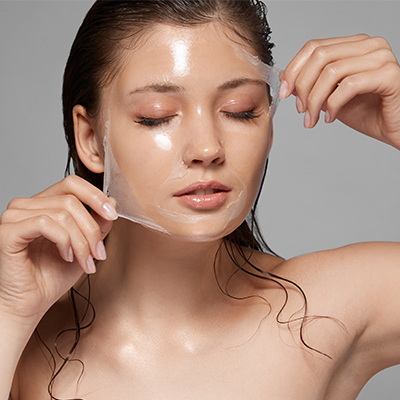Exfoliation is essential for maintaining healthy, radiant skin, and chemical peels offer one of the most effective ways to achieve this. These treatments work by removing the outermost layer of skin to reveal a fresher, more even-toned complexion. With rising skincare awareness, many people are now debating whether at-home peels can offer results comparable to professional treatments. If you’re researching chemical peels in Islamabad, it’s crucial to understand the differences between these two approaches and how to choose what’s best for your skin type, concerns, and goals.
What Are Chemical Peels?
Chemical peels involve applying a solution—usually containing acids like glycolic, salicylic, lactic, or trichloroacetic acid (TCA)—to the skin. This solution helps slough off dead skin cells, unclog pores, reduce pigmentation, and stimulate collagen production. The depth of the peel—superficial, medium, or deep—determines how much of the skin is exfoliated and how dramatic the results will be.
What Are At-Home Chemical Peels?
At-home peels are over-the-counter or prescription skincare products that contain exfoliating acids in low concentrations. These are formulated for safety and convenience, making them ideal for regular exfoliation. They often come in the form of serums, masks, or pads and target issues like dullness, clogged pores, or mild pigmentation.
Common ingredients in at-home peels include:
- Glycolic acid
- Lactic acid
- Mandelic acid
- Salicylic acid
- Enzymes from fruit extracts
At-home peels are designed for minimal irritation and gradual results over time, which makes them accessible even for beginners.
What Are Professional Chemical Peels?
Professional peels are administered by dermatologists or licensed aestheticians in clinical settings. These treatments use higher concentrations of exfoliating acids or combinations of multiple active ingredients. Depending on the treatment goal, professional peels can penetrate deeper layers of the skin, offering more significant improvements in texture, tone, and scarring.
Types of professional peels include:
- Superficial peels (e.g., glycolic or lactic acid)
- Medium-depth peels (e.g., TCA peels)
- Deep peels (e.g., phenol-based peels)
Professional peels are customizable and are selected based on your skin type, medical history, and skincare goals.
Key Differences Between At-Home and Professional Peels
1. Strength and Concentration
- At-home peels contain low acid concentrations (usually 5–15%), safe for regular use.
- Professional peels use higher acid strengths (20–70% or more), requiring expert supervision.
2. Skin Penetration
- At-home peels work on the superficial epidermis, ideal for maintaining skin clarity.
- Professional peels can reach the dermis, addressing deeper wrinkles, scars, and significant hyperpigmentation.
3. Customization
- At-home peels are standardized with fixed formulations.
- Professional peels are personalized according to individual skin conditions, sometimes combining acids and adjusting pH levels.
4. Results
- At-home treatments offer subtle improvements with consistent use over time.
- Professional peels often provide visible improvements after a single session, especially when treating sun damage, aging, or severe acne scarring.
5. Safety and Side Effects
- At-home peels are generally safer due to their mild formulas, though incorrect use can still cause irritation or sensitivity.
- Professional peels, when performed by trained professionals, are highly effective but may involve temporary redness, peeling, or downtime, especially with medium or deep peels.
6. Cost and Accessibility
- At-home peels are more affordable and convenient for weekly or bi-weekly use.
- Professional peels require a clinical visit and come at a higher cost, but they provide expert care and stronger results.
Pros and Cons of At-Home Chemical Peels
Pros:
- Cost-effective
- Easy to incorporate into a skincare routine
- No recovery time
- Gentle on sensitive skin
Cons:
- Limited in strength and effectiveness
- Results take longer to appear
- Risk of misuse (e.g., overuse or mixing incompatible products)
Pros and Cons of Professional Chemical Peels
Pros:
- Customizable treatments based on skin evaluation
- Faster and more dramatic results
- Effective for complex skin concerns (deep scars, melasma, severe acne)
- Medical-grade post-care guidance
Cons:
- Higher cost per session
- Potential side effects with improper care
- Downtime depending on the peel strength
Who Should Use At-Home Peels?
- Individuals with mild acne, blackheads, or dullness
- Those new to exfoliating acids
- People maintaining results after professional treatments
- Individuals seeking minimal interruption to daily life
Who Should Choose Professional Peels?
- People with deep acne scars or severe pigmentation
- Individuals with mature skin and signs of aging
- Those requiring targeted treatment for medical conditions like melasma or actinic keratosis
- Anyone desiring faster, visible improvement with expert monitoring
Can You Combine Both?
Yes, many dermatologists recommend using at-home peels between professional treatments to maintain results. For example, a light glycolic acid toner can help prolong the glow from a medium-depth TCA peel. However, it’s essential to avoid over-exfoliation. Proper scheduling and professional guidance can ensure that you gain the benefits of both without compromising skin health.
Important Considerations Before Peeling
Regardless of whether you choose at-home or professional peels, follow these precautions:
- Avoid retinoids and exfoliants before and after peels unless advised
- Use sunscreen diligently, as peeling skin is more sun-sensitive
- Stay hydrated and moisturized
- Do not pick or peel flaking skin manually
- Always patch-test at-home products before full-face use
Conclusion
Both at-home and professional chemical peels have their unique strengths, and the best option depends on your skin’s condition, the results you’re aiming for, and how much downtime you can manage. At-home peels are ideal for maintaining skin clarity and addressing minor imperfections, while professional peels are better suited for deeper, more complex issues requiring expert care. If you’re considering personalized chemical peels in Islamabad, it’s best to consult with specialists who understand your skin and can recommend the most appropriate treatment path.
To receive expert advice and customized skincare plans, book your consultation at the SKN Cosmetics clinic, where experienced professionals offer both clinical-grade treatments and guidance for optimal skin health.





Comments